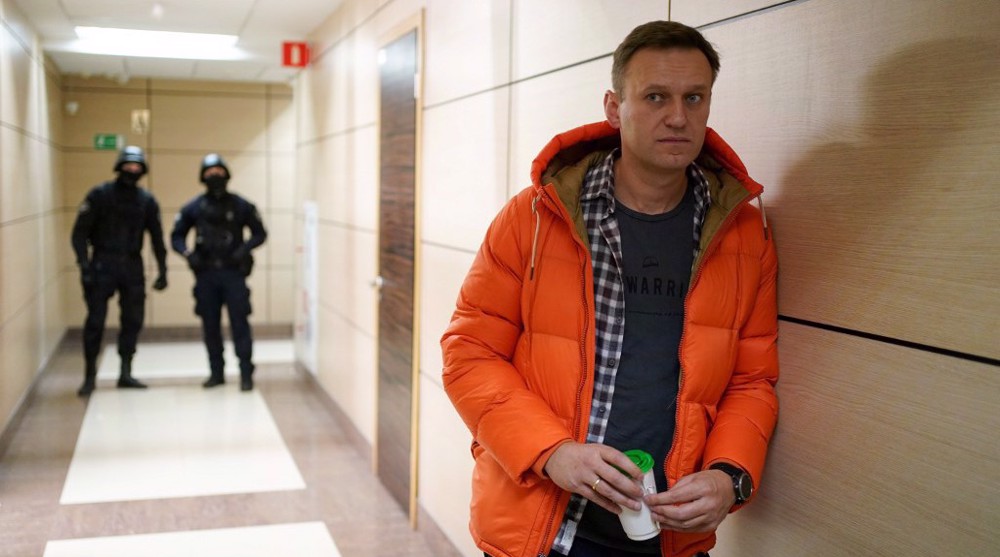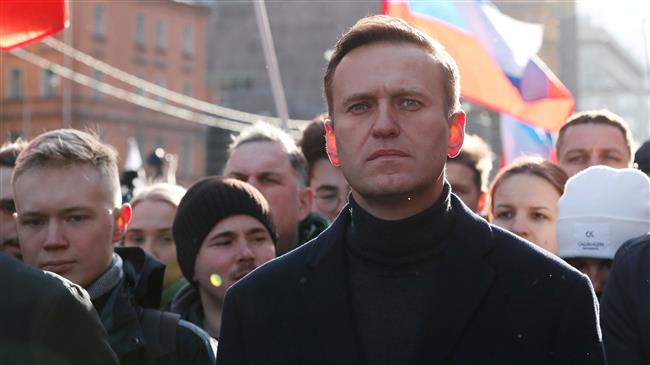Russia: No grounds yet to suspect criminality in Navalny’s case
Russian Interior Minister Vladimir Kolokoltsev says there are still no grounds to suspect criminality in the case of opposition figure Alexei Navalny, who has been hospitalized in Germany with alleged poisoning.
The Interfax news agency on Friday quoted Kolokoltsev as saying that he saw no grounds for the time being to believe that a crime had been committed in Navalny’s case.
Germany says Navalny was poisoned with a Novichok nerve agent before his evacuation to Berlin for treatment.
The 44-year-old Russian opposition figure was first taken to a hospital in the Siberian city of Omsk after collapsing during a domestic flight from the city to the Russian capital of Moscow on August 20. His plane had been forced to make an emergency landing due to the sudden deterioration in his health.
Navalny’s team claimed that a cup of tea that he had drunk before the flight had been poisoned, accusing Moscow of poisoning him. His aides even alleged that Russia ordered a ban on transporting him in “an attempt on his life.” But he was airlifted to Germany for treatment without trouble on August 22. And the Russian doctors at the hospital in Omsk said tests on his blood samples for poisoning had come back negative.
The Kremlin has several times rejected allegations that Russia had been involved in any attack on Navalny and warned other countries against jumping to conclusions without knowing the full facts.
The Russian Prosecutor-General’s Office has, meanwhile, requested Navalny’s medical records from the German hospital for a comparative study.
NATO says Russia ‘must’ cooperate with international investigation
Western countries have been calling for a criminal investigation into Navalny’s case.
Also on Friday, NATO said Moscow “must” cooperate with an international investigation.
“NATO allies agree that Russia now has serious questions it must answer. The Russian government must fully cooperate with the Organization for the Prohibition of Chemical Weapons (OPCW) on an impartial international investigation,” NATO chief Jens Stoltenberg said, reporting back from a meeting of the alliance’s ambassadors.
Stoltenberg said NATO allies would continue to consult on the incident and “consider the implications.”
Israel admits assassinating Hamas leader, vows to inflict same fate on Yemeni fighters, people
VIDEO | Yemeni forces repel US-British attack, down F-18 Jet
Iran’s capabilities vast; enemy’s ‘maximum pressure’ policies all failed miserably: Senior official
Iran’s economy grew 2.7% y/y in Sep quarter: CBI
VIDEO | Freelancers in Gaza strive to stay online amid genocide
Mikati demands Israel's withdrawal from south Lebanon
Yemeni army strikes Israeli military sites with drones
‘Clock ticking’: UNRWA slams unjustifiable killing of children in Gaza















 This makes it easy to access the Press TV website
This makes it easy to access the Press TV website